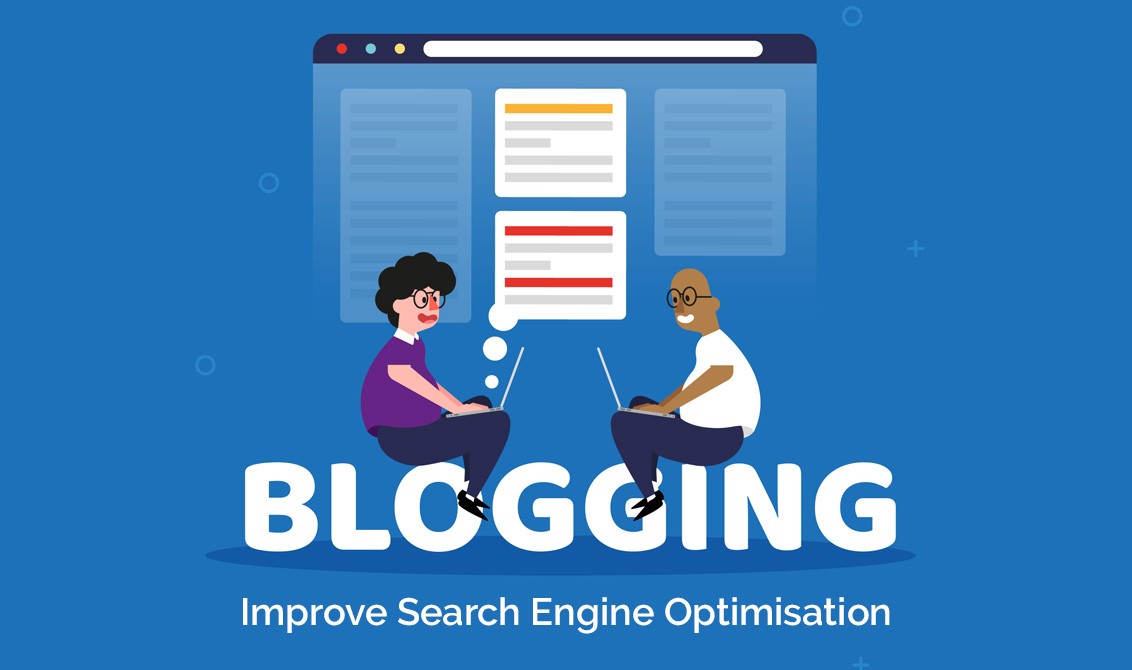
Regularly creating and publishing content can increase your website’s visibility in search engine results pages (SERPs). This helps your website rank higher for relevant keywords and phrases, which can lead to more organic traffic.
Google and other search engines use a variety of ranking factors to determine what results appear for each query. These include things like page titles, meta descriptions, content quality, and backlinks. Blogging allows you to optimise your site for these critical ranking factors.
You can create content optimised for specific keywords or topics and provide valuable information that will help readers find what they are looking for. Also, blogging allows you to build relationships with other websites by linking to them in your posts. This helps build trust with Google and other search engines, which can result in higher rankings over time.
Blogs help you optimise your site for critical Google ranking factors like:
- Organic Click-Through Rate
- Index Coverage
- Backlinks
- Internal Links
Organic Click-Through Rate
Organic click-through rate (CTR) is an essential metric for measuring the success of a website’s SEO efforts. It measures how often people who find your website through organic search results actually click on it. Blogging can be a great way to improve your organic CTR, as it allows you to create content targeting more keywords than other types of pages.
For example, when someone clicks on a landing page, they usually have transactional intent – meaning they are ready to convert. However, people search online for many different reasons, and blogging has the potential to answer navigational, informational, and transactional search queries. Creating content that caters to all these types of searches can increase the number of clicks your pages receive and ultimately improve your SEO ranking. Additionally, by targeting more keywords with blog posts, you can increase your website’s visibility in organic search results.
Index Coverage
Index coverage is an important part of SEO that many people overlook. It refers to the process of getting your website pages indexed by search engines like Google. When a page is indexed, it means that the search engine has found and added it to its index, making it available for users to find when they search for keywords related to the content on the page. Without indexing, your pages won’t show up in SERPs and you won’t get any organic traffic from search engines.
One way to ensure that your pages are indexed regularly is by adding fresh content to your site on a regular basis. This encourages Google to crawl your site more often and index new pages as they are created. A blog is a great way to do this as it gives you an excuse to post new content frequently, which can help with index coverage. Additionally, creating relevant and link-worthy content will also help encourage Google to crawl and index your pages more often.
Backlinks
Backlinks are an important part of SEO and can help to boost your website’s visibility in search engine results. When other websites link to pages on your website, it shows search engines that your content is useful and authoritative. This is a peer review system online, where the more respected sites link to your blog posts, the more likely your website will rank higher in search results.
Blog posts are particularly effective when it comes to attracting quality backlinks because they are likely to educate or inform users. Quality content is key when it comes to gaining backlinks, as people are more likely to link to something that adds value or provides useful information.
As such, creating high-quality blog posts with relevant keywords and phrases can help you gain valuable backlinks from respected sites.
Internal Links
Internal links are an important part of any website. They provide a clear path for users to follow and make it easier for them to find the content they’re looking for. Internal links also help search engine crawlers understand the organisation of your site, which can help improve your SEO rankings.
One way to create more internal links is by having a blog on your website. This gives you more pages that you can link to internally and a chance to direct site traffic to other pages that may be helpful for your users. For example, if you run a lawn maintenance company and offer lawn mowing services, you could link your blog posts about lawn care tips to the page on your site where customers can book their service. This helps both visitors and search engines understand how all the different parts of your website fit together.
Conclusion!
It is a handy and accelerated way to pull in visitors and gain rankings naturally. Hence, if you do settle on blogging, be consistent with renovating them, interlink with appropriate websites and speak of keywords that you are able to compete for and that are best for your offerings on your website.
Suggested Read: How to Increase Ranking Via Quality Content & Relevant Keywords


